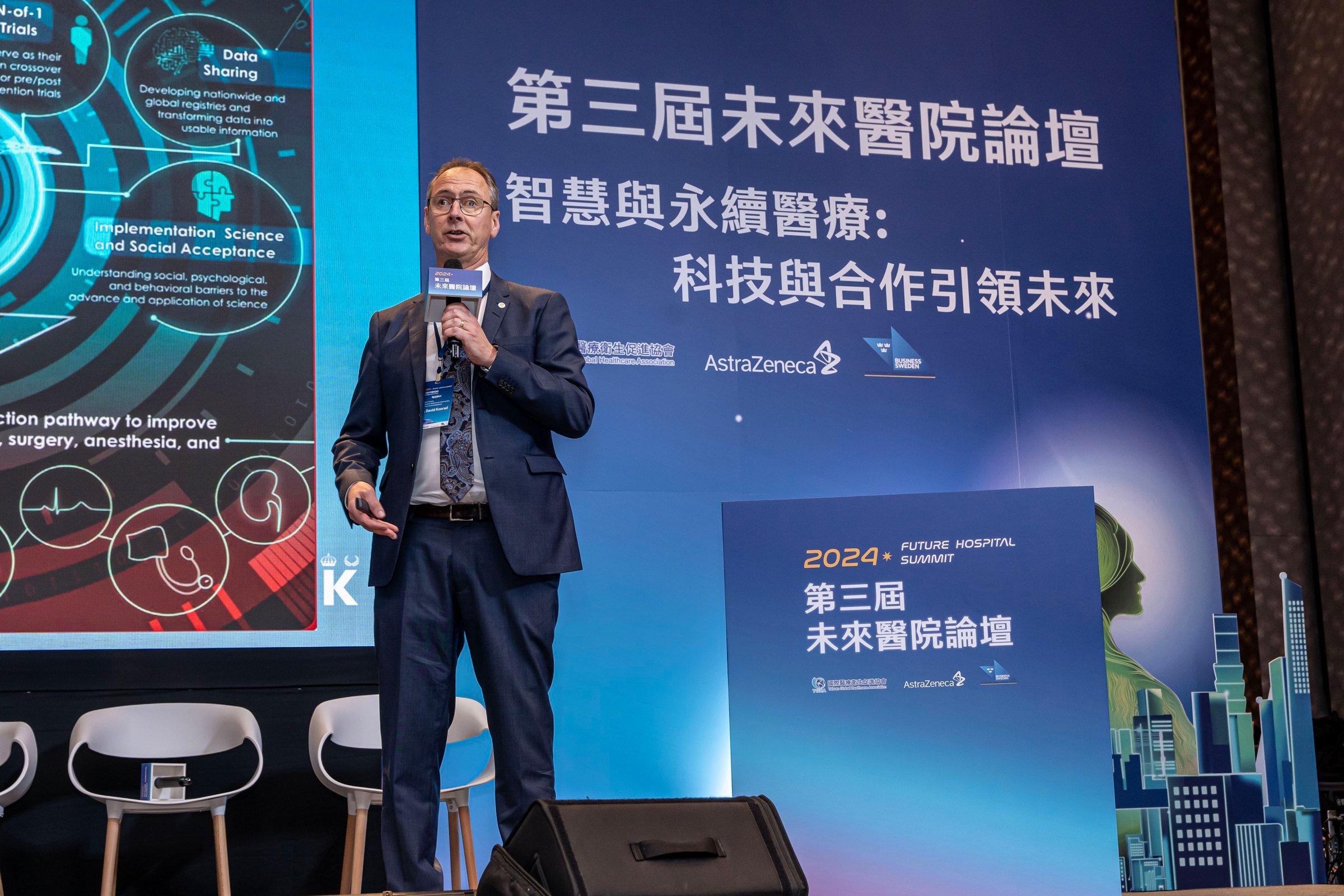AI and digitalization in focus at conference in Taiwan

The conference, organized by Taiwan Global Healthcare Association in collaboration with Business Sweden and AstraZeneca Taiwan, focused on three pivotal areas: Smart Hospital Operations, Application of Artificial Intelligence in the Healthcare Industry, and Green and Sustainable Hospitals.
Karolinska University Hospital was represented by Dr. David Konrad, Manager of Peri-Operative Medicine & Intensive Care Function, who shared his experiences about present and potential applications of new technologies, including AI, at Karolinska. A key message during the conference was that digitalization and AI must always be guided by operational needs and involve clinical staff in the development processes.
A Shared Challenge and Opportunities for Knowledge Exchange
Like Sweden, Taiwan faces the challenge of an aging population. This demographic shift has accelerated the country's IT development, which is seen as critical for managing the increasing patient demand in the coming years. A significant progress has been made in leveraging its IT infrastructure to improve diagnostics, streamline care pathways, and visualize data for various users, particularly in cancer care and radiology.

“Hospital@Home is an example of an innovative solution that demand the continuous development of IT. It is a prioritized strategy for many university hospitals where much of the care currently provided in hospitals is planned to be moved into patients' homes. In this area, Karolinska and Region Stockholm have a strong position and potential to lead the way—provided we can address challenges related to information sharing and data use between different healthcare providers," says Dr Konrad.
The conference presented Taiwan's national IT strategy for healthcare digitalization, where university hospitals play a leading role in development. Instead of investing in large, integrated IT systems, Taiwan is building flexible data repositories capable of receiving information from various systems. Data management is based on international standards such as FHIR, a methodology that also forms the foundation of Karolinska's IT structure.
"Taiwan and Sweden share many values and challenges in healthcare. By strengthening collaboration between our countries, we can benefit from shared experiences and advancements—particularly in IT, AI, and patient-centered care," concluded Dr Konrad.
Photo: AstraZeneca Taiwan